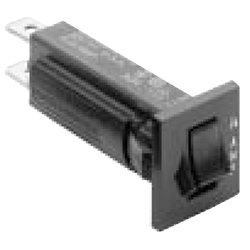|

Product Links 
|
|

Inside SRI

|
| SRI-Newsletter |
 |
Subscribe to our newsletter to receive monthly specials, manufacturer's feature, and electronics news via email. |
|
 |
|
See Our latest release of SRI-Newsletter here
 |
|
View Our List of Archived Newsletter Articles
 |
|

SRI Links

|
|
Visit our Sister Site,

Distributor of
Industrial Products
| |
|
Web Search ..
Powered by;

|
|
 |
 |
 |
 |
 |
According to electronicsrecycling.org, nearly 200 million tons of waste is sent to landfills in the US each year. If electronics scrap accounted for only 1% of this volume, it would result in the land filling of:
160,000 tons of leaded glass (8%)
1,150,000 tons of ferrous metals (57.5%)
472,000 tons of non-ferrous metals (23.6%)
120,000 tons of precious metals (6%)
88,000 tons of mixed plastic (4.4%)
6,000 tons of hazardous waste (0.3%)
The Product Stewardship Institute projects that given growth and obsolescence rates of the various categories of consumer electronics, an average of about 400 million units a year, including 200 million televisions and 1 billion units of computer equipment will be scrapped. Not only do many consumer electronic products contain toxins that make their disposal potentially hazardous, but also they are costly to collect and dismantle because they aren't designed with recycling in mind. This month's article explores the recycling process and the options currently under discussion for recycling systems. Learn More.
Demanufacturing is the process of breaking down electronic equipment into metallic and non-metallic parts that can be recycled. Ninety-five percent of material found in electronic equipment is recyclable. Workers at the recycling plant remove wire, metal, plastic, glass, and separate and sort them. The smaller parts, like metal on printed circuit boards, that aren't separated into the various commodities can be crushed and milled. A magnet is used to quickly remove metal and the metal that is difficult to remove from plastic or glass will be sent to a smelting plant where a process similar to ore extraction, like when it was originally mined, is used. Leaded glass can be used as a fluxing agent during ore processing and the lead from the glass becomes part of the end product.
In Sacramento, California, HMR, an international company that turns high-tech "junk" into marketable commodities, processed over 6.5 million pounds of since 2002 - most of which was from the bay area.

|
HMR workers manually dismantle most electronic equipment and sort out valuable commodities that are sold to various recyclers. |
The International Association of Electronic Recyclers (www.iaer.org) explains that more than 400 companies in the USA are considered to be electronics recyclers. Most major metal refiners are located outside the United States, though. China is a growing destination for recycling scrap electronics. The recyclable materials we generate in this country are inexpensive, accessible, and environmentally preferable alternatives to extracting virgin raw materials from the earth. The IAER also notes that significantly larger quantities of obsolete electronics are forecasted - 3 billion units of consumer electronics will be scrapped during the rest of this decade. The enormous volumes of end-of-life electronics from all sectors will drive the electronics recycling industry to grow its capacity by a factor of four or five by the end of this decade.
States are starting to propose legislation that encourages recycling. According the North County Times, California governor Schwarzenegger just signed legislation to make cellular phone stores also recycle them at no cost to consumers. This is the first state to implement such legislation. There are proposals that include tax credits for companies and individuals who recycle using qualified recyclers. Other proposed bills will require the EPA administrator to study and make recommendations to Congress on the feasibility of establishing a nationwide recycling program.
Recycling is transforming the way we manage materials and natural resources. Big cities where many recyclables are available are the mines and forests for the next generation. The question is, "Are you doing your part?" With new legislation designed to encourage recycling by reducing or eliminating most of the cost, now is the time to incorporate recycling into your business model.
|
**Specifications subject to changes**
|
|
 |
|

Product Spotlight
 |
|

|
Time Delay Relay - 10AMP - A/C 120V - 1.0 to 180 sec Delays
$186.76
MORE INFO

More NTE 
|
|

|
Snap-in mounting, Push-to-reset Circuit Breaker Relay
$0.00
MORE INFO

|
|

Sponsored Ads
 |
|